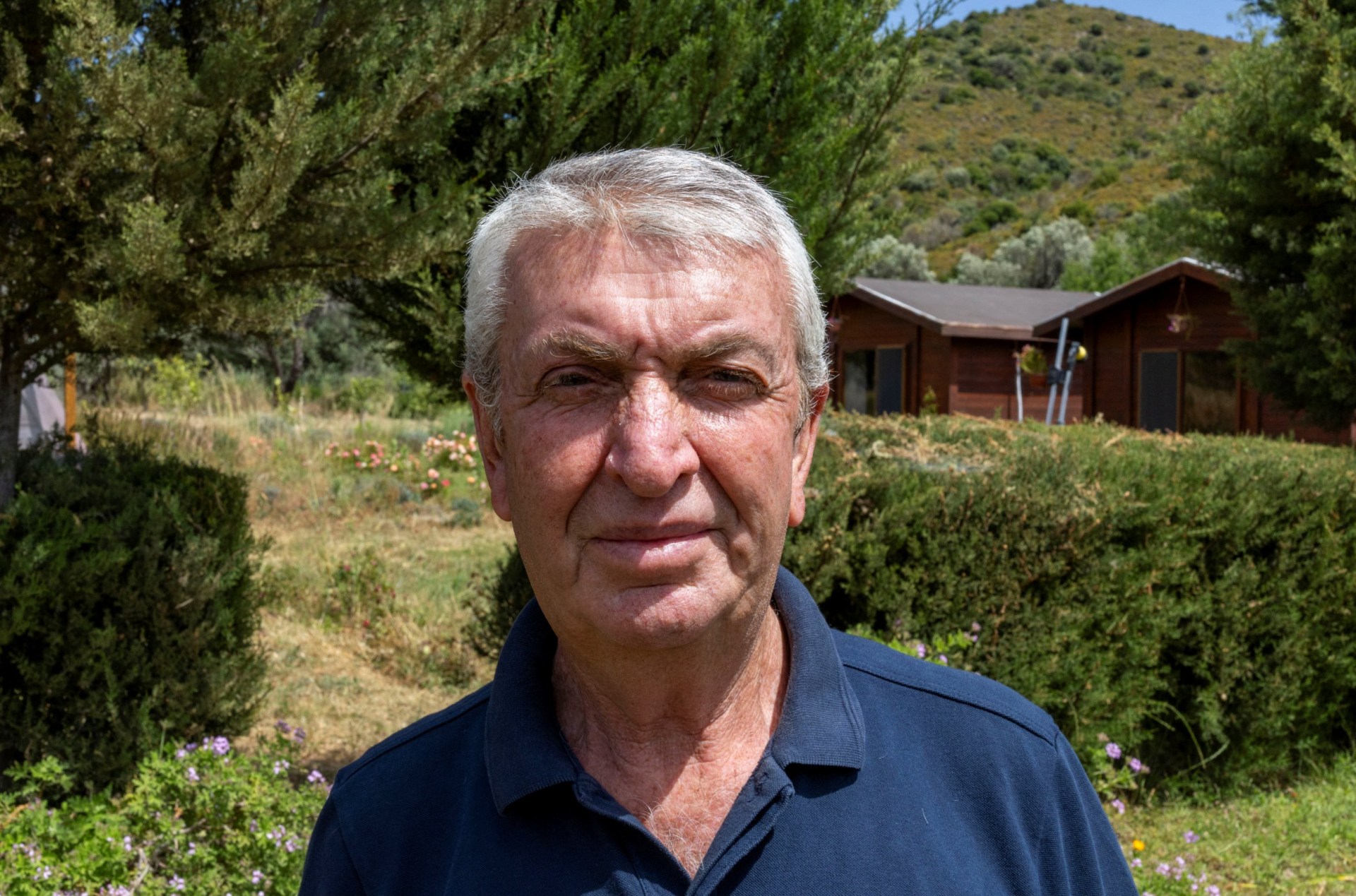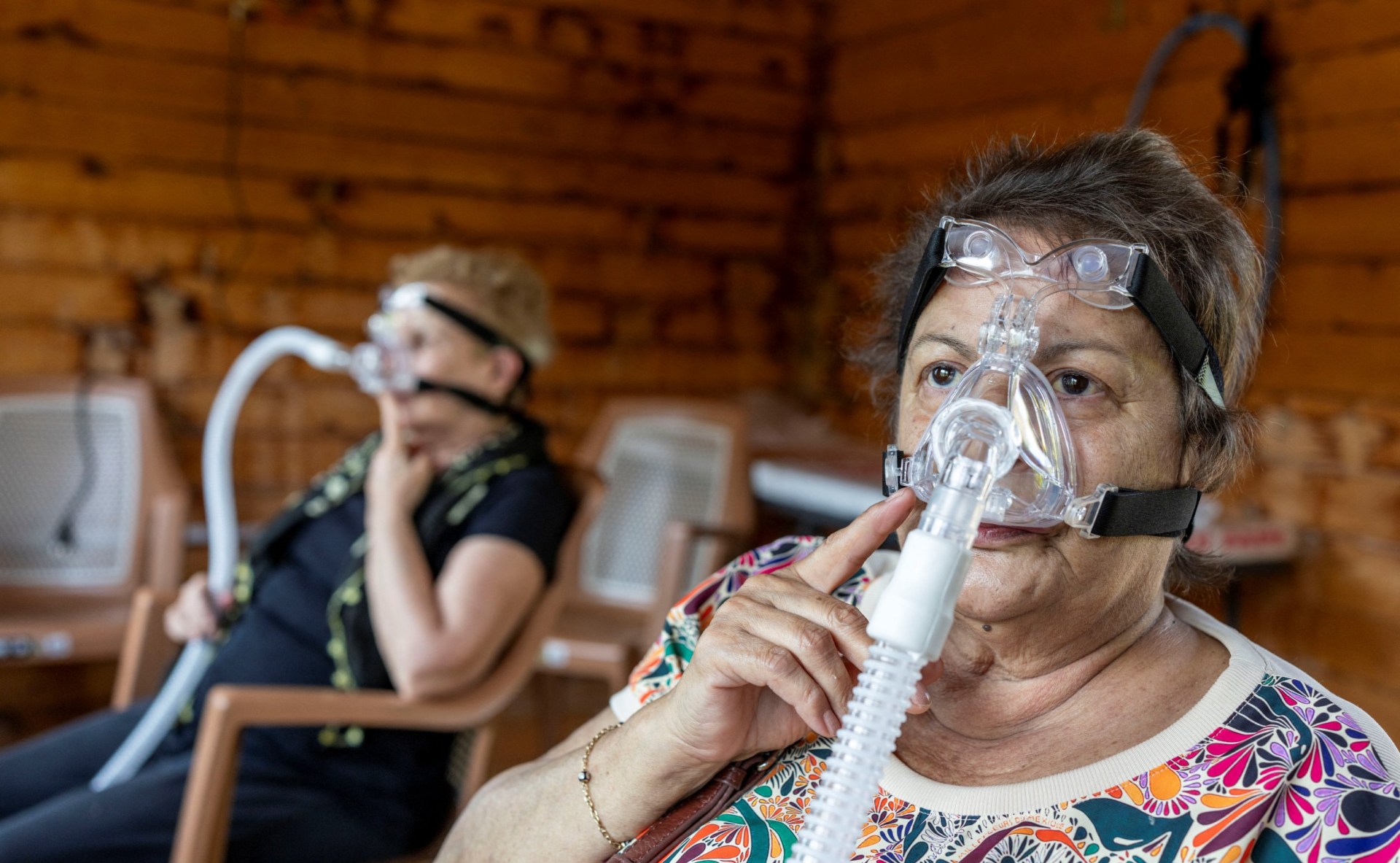A beekeeper in Turkey is offering an unusual therapy to aid individuals in recovering from various conditions – inhaling the air from beehives.
Huseyin Ceylan hails from a lineage of beekeepers and pursued studies in agriculture prior to establishing his apiary in Karaburun, which lies near the Aegean Sea, approximately three decades back.
The region has gained popularity due to its beaches; however, some visitors now come specifically for ‘apitherapy,’ a word stemming from the
Greek
for bees.
Visitors often linger for multiple days in the woodlandcabins, breathing in hive-extractedair for as long as threehours daily, according toCeylan, this practice aidsin tackling problems rangingfrom allergies to headaches.
The
government
does not formally acknowledge the therapy; however, numerous other beekeepers practice it across Turkey and in various other nations, including
Germany
and
Russia
.
Ceylan has advocated for years to have the sector recognized, carrying out research and sharing her findings with authorities.
“We aren’t opposed to what we refer to as Western medicine; after all, it holds significant importance,” he stated.
‘I have been doing this for fifteen years, trying to bring this into medicine.’
Ulku Ozman, aged 69, opted for this therapeutic approach after a friend recommended it following multiple surgeries and the frequent use of medications had compromised her immune system.
During her almost weeklong stay, Ozman and others go into a cabin equipped with ventilators linked to beehives for fresh air.
Every session is 45 minutes long, during which the participants switch places every 15 minutes to experience breathing in the distinct aromas of three separate beehives.
Visitors typically spend approximately 5,000 lira (£95) each day for the program including their stay and meals.

Visitor Senay Ilham, aged 68, has been diagnosed with breast cancer that spread to her spine; however, she is currently in remission following standard treatments.
‘This scent feels nostalgic. It reminds me of my childhood,’ she mentioned.
‘(The beehive air) always gives me a breath of fresh air. It helps me relax mentally and physically.’
Although bees themselves are not renowned for their healing abilities, their honey certainly is.
In 2019, a man whose infected penis had ruptured underwent reconstruction using Manuka honey.
Initially, doctors believed that the 55-year-old man from Roskilde, Denmark, was experiencing balanoposthitis, an inflammation of the foreskin and glans. However, upon further examination, they discovered tumors.
Following the removal of the tumors, medical professionals tried to reconstruct the penis with skin grafts, but
chose honey-based dressings as an alternative when the process didn’t work out.
Manuka honey is recognized for its antiviral, anti-inflammatory, and antibacterial characteristics and can be employed to address non-healing wounds.
It’s created using nectar gathered by bees that feed on manuka trees, which grow in both New Zealand and Australia.
The document stated that within fourteen days, healthy tissue began to heal the injury on the man’s genital area.
Contact our news team by sending an email to
[email protected]
.
To find similar tales,
check our news page
.
Get the latest on all the buzzworthy stories by subscribing to ‘s News Updates newsletter.







